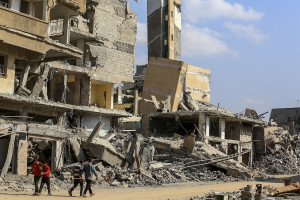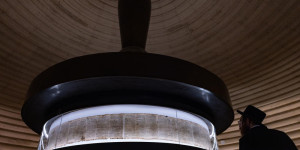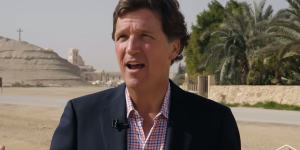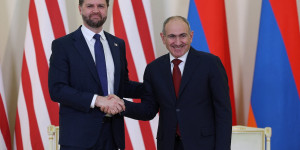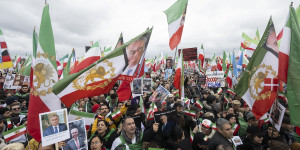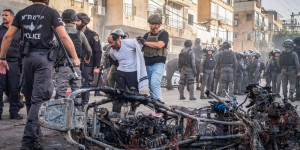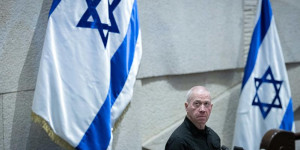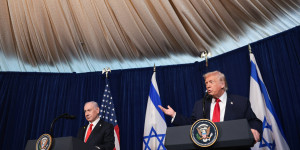US reconsidering Hamas disarmament over lack of support from partner nations - Israeli report
Israeli official says US and Israel have ‘fundamental differences of opinion’ over how to move forward
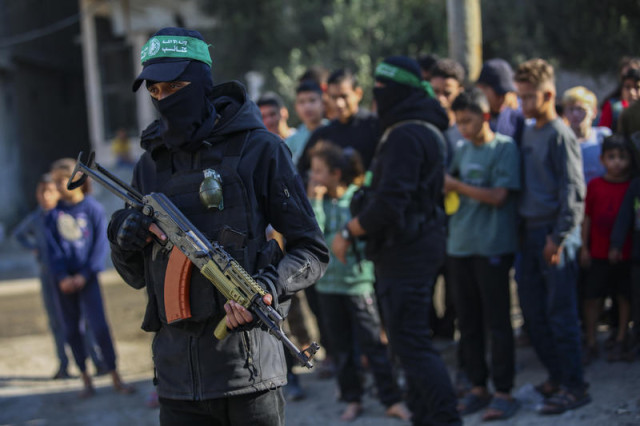
In their desire to push forward with the Gaza peace plan, U.S. officials are considering moving to the second phase of the ceasefire, despite the failure of Hamas to disarm or release all the hostage remains, an Israeli report claims.
A report in Israel’s Channel 13 News claims that there are “fundamental differences of opinion” over how to proceed between Israel and the United States, with the U.S. wanting to move to the rebuilding and rehabilitation phase.
The Israeli government is unwilling to proceed with the rehabilitation of Gaza without first solving the issue of the demilitarization of Hamas, as called for in the 20-point plan proposed by U.S. President Donald Trump.
An Israeli source told Channel 13 that talks between the U.S. and Israel on how to proceed “are approaching a dead end,” as the U.S. has run into problems creating the international stabilization force (ISF) meant to ensure security in the Gaza Strip, and originally intended to be responsible for disarming the Hamas terror group.
#BREAKING A looming clash with Washington: As the UNSC prepares to vote on the ISF, tasked among other things with disarming Hamas officials in Jerusalem tell me the U.S. is pushing to start the rebuilding of Gaza immediately, before resolving the question of Hamas’ disarmament.…
— גיא עזריאל Guy Azriel (@GuyAz) November 15, 2025
However, in recent days, the disarmament of Hamas has proved to be the primary issue in establishing the ISF. The king of Jordan recently said that no Muslim nation will be willing to commit troops to the ISF if they are required to confront Hamas.
“What is the mandate of security forces inside of Gaza?” King Abdullah II asked in an interview with the BBC in late October, before the U.S. submitted a draft resolution for the ISF to the UN Security Council. “And we hope that it is peacekeeping, because if it's peace enforcing, nobody will want to touch that.”
Both Turkey and Qatar, which have supported the ISF resolution, have downplayed the need to disarm or confront Hamas. The unwillingness of those two countries, which are primary supporters of the Gaza peace plan, to demand the disarmament of Hamas caused the United Arab Emirates to decrease its role in the Gaza peace plan, over concern that Qatar and Turkey will enable Hamas to continue existing in its current form.
“These states will make it possible for the terrorist organization to continue existing,” an anonymous source recently told The Jerusalem Post, regarding the UAE’s concerns.
“There are interested parties affiliated with the Muslim Brotherhood who are currently embedding themselves in key positions in the Gaza reconstruction plan,” the source claimed.
While U.S. Secretary of State Marco Rubio recently said that the ISF “shouldn’t be a fighting force,” as a way of addressing concerns that Arab and Muslim countries might have over participation in the ISF, Rubio also affirmed that the “agreement that was signed and that all parties agreed to calls for the demilitarization of Hamas.”
Israeli officials are concerned that the U.S. is no longer focusing on the demilitarization of Hamas, which it sees as a red line. With the U.S. expressing interest in moving to the rebuilding phase, Israeli security officials have expressed concern.
“There is no rehabilitation before demilitarization, it contradicts the Trump plan, Gaza must be demilitarized,” a security official told Channel 13. “The Americans are not succeeding in forming a foreign force, so they are going for interim solutions, which are currently unacceptable to Israel.”
At the same time, Hamas has begun reestablishing its control over the parts of Gaza under its authority in recent days, including resuming collection of taxes and fees needed to resume paying the salaries of its fighters. Last week, Hamas began to erect checkpoints at various points in the Gaza Strip, collecting taxes from truck drivers making deliveries.
However, Ismail Al-Thawabta, head of the Hamas media office, denied reports of Hamas taxing certain purchases, such as cigarettes and fuel, saying the organization was merely trying to prevent price gouging.
Al-Thawabta said Hamas is still committed to handing over control to a Palestinian technocratic government, “Our goal is for the transition to proceed smoothly.”
Meanwhile, the U.S. is reported to be pushing for a vote on the ISF resolution in the Security Council on Monday. One of the nations which has supported the resolution and expressed interest in contributing forces to the ISF is Turkey.
On Saturday, Turkish Foreign Minister Hakan Fidan said the country is ready to “fulfill its responsibilities,” including sending troops. However, given Turkey’s extremely anti-Israel rhetoric over the past few years, and especially since the start of the October 7 war, Israeli Prime Minister Benjamin Netanyahu said the country will not permit Turkish troops to enter Gaza.
In his statements, Fidan spoke of Israeli aggressions and violations of the ceasefire, without mentioning the several attempts by Hamas fighters to attack IDF troops inside the Yellow Line. He said the purpose of the ISF should be on “establishing a mechanism that ends the [Israeli] occupation.” Fidan also reiterated Turkey’s rejection of the classification of Hamas as a terror group.
Israeli politicians across the political spectrum are united in rejecting any role for Turkish troops in the ISF.

The All Israel News Staff is a team of journalists in Israel.
You might also like to read this:


